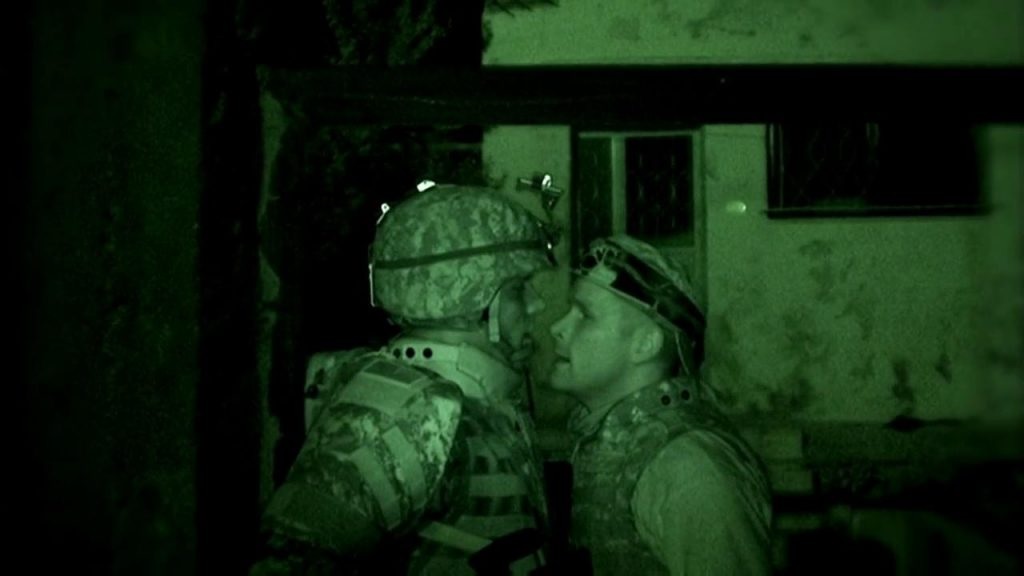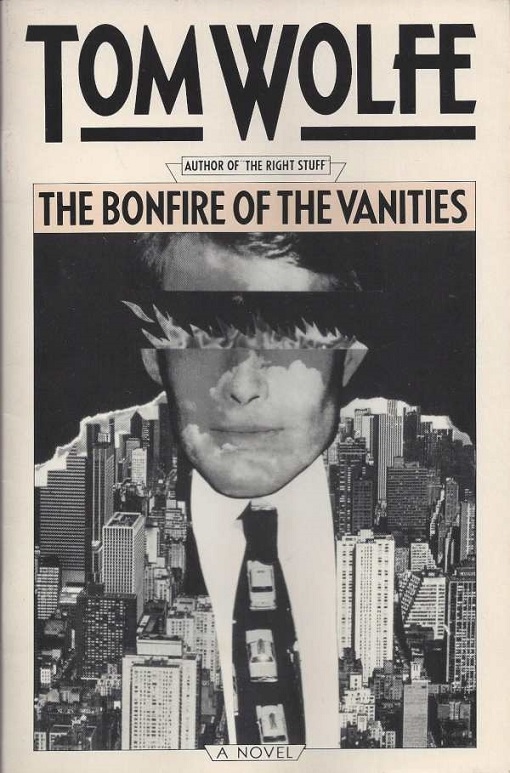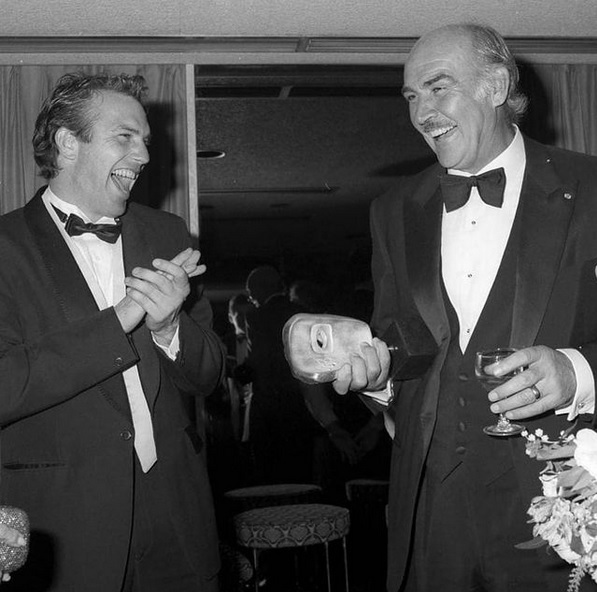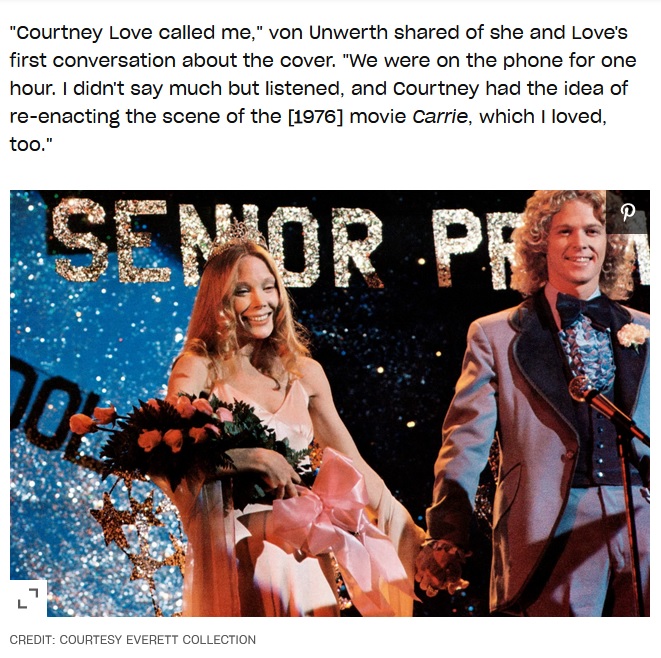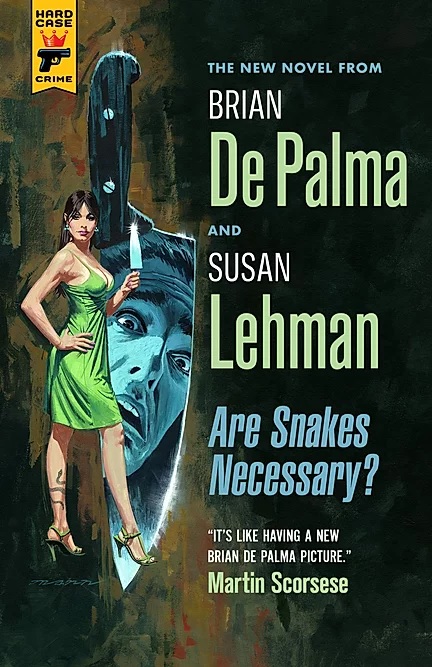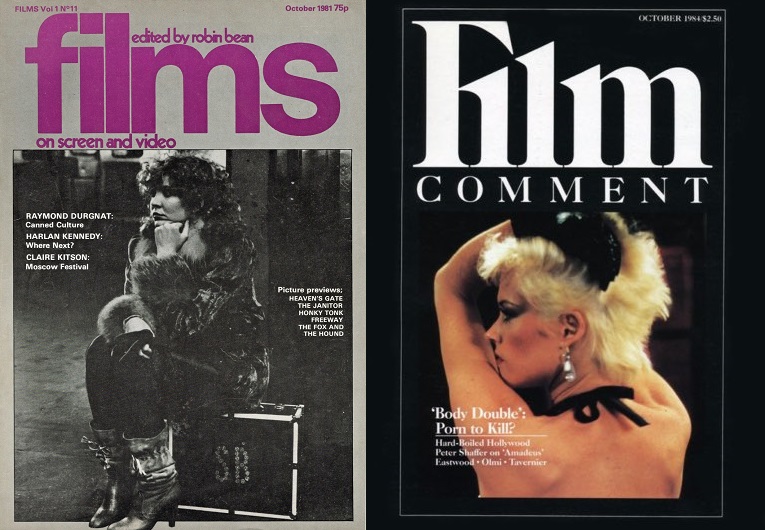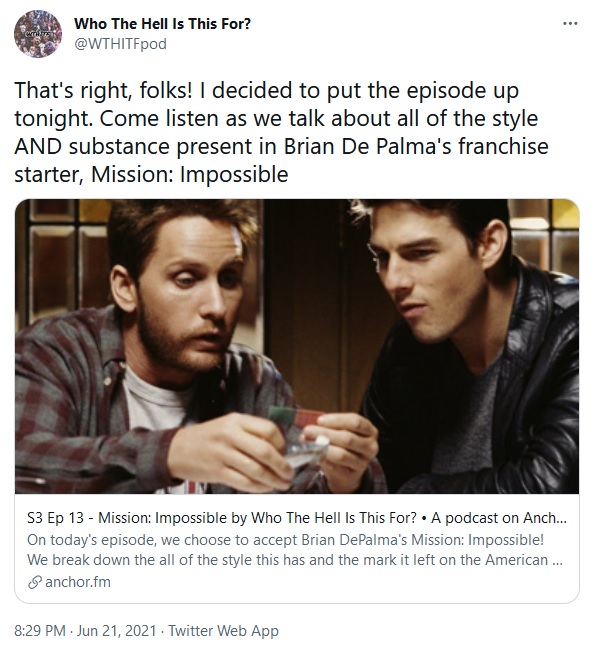. The episode features part one of the podcast's interview with
. After talking about De Palma and Lehman's novel
Drew: Did you send any early drafts or run any of the ideas by your buddy and neighbor David Koepp? De Palma: No, not really. I think we sent... yeah, because he read the book and gave us a quote. Yes, only when we were finished.
Drew: Okay.
De Palma: Basically.
Lehman: Here's a trade secret: Brian is very big on don't show your work to anybody until it's finished.
Drew: Oh, really. But you famously have chimed in on other people's work in progresses, like, correct me if I'm wrong, but you really, uh, heckled Lucas on using [begins to laugh while talking] "The Force" in that early Star Wars screening.
De Palma: Will we never live down this meeting over the first screening of Star Wars. Everybody's.. I mean, when I talk to everybody that was involved in that movie, everyone has a different version of what happened.
Lehman: Well, give your version.
Drew: Yeah.
De Palma: But my version-- I mean, my version is pretty close to... I was just watching Steven's, um, the biography they did of Steven. And he related how he saw it. Everybody, you know, they always portray me as the guy that says the worst thing that drives everybody crazy. But if you're gonna to show me something, I'm gonna tell you what I think about it. Why am I there unless I'm gonna give an honest appraisal of what I've seen? And in this case, you know, the fact that Steven says that only he saw the possibilities of Star Wars, that's not really true. We all saw it as a terrific thing that George had done. And you know, we were well aware of where the special effects weren't there, and how they had cut in all these planes from other movies to be things they were supposed to be-- you know, the ships and stuff like that. But I did make a joke about The Force. That's true. [everybody laughs]
Lehman: Tell us what your opinion of The Force was.
De Palma: I just thought the idea of The Force was like, you know, "THE FORCE!" I would say, but I kept repeating it, you know. But, it doesn't seem like a great name for this kind of spiritual guidance. So, "The Force." So, needless to say, I had a lot to say about The Force, which obviously I was terribly wrong about. But the other thing was that no one knew what was, you know, the movie starts in chapter 3, we're in a world nobody's ever... knows anything about, he's got all these funny names for people, and I said, "George, you've gotta set this up somehow. Like those scrolls in the Flash Gordon movies." You know, George had that idea, but it was all gobbledygook, basically. So I and Jay Cocks went over the crawl and basically rewrote it. So it made some sense. And that was our contribution.
But, I mean, I said some things very direct to my director friends about their movies that went on to be extremely successful. Sometimes I was right, sometimes I was wrong, but they did the same for my movies. I mean, I think when George saw Mission: Impossible, he said, you know, "There's no set-up for this thing. You've gotta set this thing up. 'You're gonna do this. You're gonna do that.You're gonna do that.' You gotta have that scene where they're all sitting around the table and everybody gets their instructions about what's gonna happen." In the beginning, we had this very strange scene. It's hard for me to remember now. But with Voight, and somehow the jealous thing with the wife and Tom and then we got into the first mission and when George saw the movie, it's the first thing he said: "What are these people doing? You know, this is Mission: Impossible, a group of guys going to do stuff. So you've gotta get 'em all around a table and tell the audience what they're supposed to do." And that's what we did. We went back and re-shot it. So that was an example of us helping each other.
Drew: Wow.
Charles: And so is that scene with Jon Voight at the head of the table and Kristin Scott Thomas is off to the side, was she not able to come back for scheduling? It kind of seems like she was sort of isolated in a corner?
De Palma: Correct. An astute student of cinema. In fact, Kristin could not come, so I had to shoot her over to the side, and we doubled her in the master shot with her back to the window.
Drew: Wow.
Charles: I don't think I can take credit, I think someone else pointed that out for me, but...
Lehman: Go ahead, take credit.
[laughter]
Drew: I don't know if you know this, Brian, but we have done, like, over 150 episodes on the Mission: Impossible franchise, and talked to many of your collaborators on the first movie. And they told us everything. No, I'm kidding. So we were wondering, you know it's the 25th anniversary now, and you had an interesting sort of history with writers on this one, too, which is why I'm glad Susan's here to hear about your relationship with other writers.
Lehman: No, I've heard this before.
[laughter]
Drew: Did you use anything from that original Katz and Huyck draft of the movie, or was that just...
De Palma: Which draft are you talking about?
Charles: Supposedly there was a draft that Willard and Gloria Katz did...
De Palma: Correct.
Charles: And did you end up using anything from that?
De Palma: No. What happened was Sydney Pollack worked with them originally. He worked for a year on a draft that was set in the midwest. There was a storm. I don't even remember what it was. But Tom was unhappy with it. And when the head of CAA said to me, "Would you be interested in doing Mission: Impossible with Tom Cruise," and I said, "You bet," and they sent me off to... because Sydney wanted to do Sabrina. He wanted to get out of the Mission: Impossible situation. Because it wasn't going well. So Sydney went on to Sabrina, and they plugged me into Mission: Impossible. So I proceeded to work with the Huycks, who I knew way back from working with, you know, George many years ago. And we worked on a version still all set in the United States. I think the... and I don't even quite remember what the mission was, but it had something to do with a storm. And I knew Tom was not gonna like this. I was forced to go through with another draft of this thing where everybody was looking around for new writers to start all over again. And then Paramount had a commitment to Zaillion, and Zaillion and I went off to his office, we smoked a lot of cigarettes, I think we ate a lot of, well, I ate a lot of popcorn, and we worked for a couple of weeks, and we worked out this ten-page treatment of what ultimately became the basis for Mission: Impossible. But then Zaillion had other things he wanted to do so he bailed out. And then I ran into David, who was about to do a remake of something. And I said, "Don't do that! Come over and let's do Mission: Impossible." So he said, "Great." So I handed David this ten-page treatment, and he and I worked out the initial script for Mission: Impossible. That's act number one.
Act number two is, I'm trying to convince Jon... all Paramount wanted to do was make Mission: Impossible. To get Tom Cruise into Mission: Impossible was all they cared about. What the script was, who cares, as long as Tom is in Mission: Impossible. Tom was always having problems with characters or something. And I said, "Tom, you gotta go in and tell Sherry that you're gonna make this movie or we're going nowhere." So ultimately, Tom said okay, we're gonna make this script. And everybody said good, we have a go picture, we're going to London, we're starting to build all the sets. But I got a call the next day, and it was from Paula Wagner. And she said, "The good news is we're all go. The bad news is you have to fire David Koepp." I said, "What?!?" "Because Tom wans to bring on Bob Towne." "Fire David Koepp??" David's never been fired in his life. He's an old friend of mine, and I said, "You've gotta be kidding." "No. That's what Tom wants to do." So I had to call up Dave, I said, "Dave, the good news is, it's a go, the bad news is, you're fired." So what I did was keep David in the loop, let him know what we were doing, when we were starting to go into production, and Towne was up in the hotel for about six weeks, writing God-knows-what. Tom and I used to come in from rehearsals and act out these scenes in front of him. And he would work some more and smoke a few more cigars, and...
Lehman: Are there any tapes of that? Of you and Tom acting out the scenes?
De Palma: I don't think so. Finally, when he had to submit a script, the new script, Paula was appalled. I mean it just didn't work at all. So I said, "We've gotta bring David Koepp back on. And we've gotta take some of the good stuff, the good scenes that Towne had done..." See, what Towne did, he re-wrote the whole script. That's not what needed to be done. The characters had to be fleshed out a little bit. There have to be some clever lines. That's what he did. And then I brought David back on, I made them pay him a lot of money for two weeks. He took what Towne had done and integrated it into his script, and that became the script we shot. Of course, until the famous story about pulling off masks in the boxcar. Which we had a big fight over that. I said, "I've got this big helicopter chase in the tunnel! Him on the train, Voight on the helicopter..." And then Towne looks at me and says, "Oh, one of those, you know, helicopter-going-into-a-tunnel sequences." I said, [sarcastic] "Oh, okay, maybe you're right. Let's do pulling off masks in the boxcar. That's how we'll wrap it up. Great!" And I left it at that. I walked out of the room. And Tom came around and thought that maybe the helicopter thing would be better than pulling the masks off in the boxcar as a finale.
Drew: So how much of the Towne stuff ultimately made it in, would you say? Not much?
De Palma: There were some good Towne lines in there, but basically it's David's script. And I was very disappointed with Towne. But, you know, he has such a great reputation. I was very disappointed in what he did, and then look what he did to the next Mission: Impossible. It's a mess!
[laughter]
Drew: That's true.
De Palma: That is the... no good.
Drew: He was riffing on Hitchcock, though. I mean, did you have any sympathy in that?
De Palma: You mean in the one he did after mine?
Drew: Yeah. It's Notorious.
Charles: Basically, it's Notorious.
De Palma: Yeah, you know, I heard that idea so many times, "Let's do Notorious," blah-di-blah-di-blah. That's what he did, and it was not good.
Charles: When you say you heard that idea so many times, do you mean Tom Cruise was saying to you, "Let's do Notorious"?
De Palma: No, no, this was an idea that Towne had about doing a kind of Notorious element.
Charles: Oh, okay.
De Palma: We all love Notorious, but it didn't work for Mission: Impossible. As you've probably heard.
[laughter]
Charles: You know the sequence in the diner with Jon Voight, when he's revealed to be alive, and Tom Cruise is seeing the truth while Jon Voight lies. I think that Paul Hirsch had some hilarious comments about how critics were dumbed-down from Twister coming out a couple of weeks before [laughing]. He told us about that. But I'm wondering where that... that sequence is so brilliant, and I just love it so much. I'm wondering when did that come about? Was that with Koepp, or was that, you know, when in the process?
De Palma: Now you're getting into an area that I don't quite remember. I remember the way I shot it. And the idea of... I think it must have come from me and David. Because I had this idea that Voight should be saying one thing and Tom should be thinking what the truth was. And then, you know, I had laid out the sequence like that. But I think that's something we had right in the beginning of the script. I guess you can check in the versions David has on his website.
Charles: Yes.
De Palma: In the initial script, and how it changed in the final version.
Lehman: I think those are all included in the De Palma archives, by the way.
De Palma: [laughs] No, they're in the David Koepp archives.
Charles: In one of his earlier scripts, there was a great set piece with a military wedding. Where, you know, Ethan is tricking Kittridge by showing up, and he does a quick change of his outfit to, like, fit in with this whole military wedding that comes out of the church. Do you recall that?
De Palma: No.
[Laughter]
De Palma: We had a great sequence where they got one of the members. I think it was...
Charles: Ving Rhames?
De Palma: Ving? I think it was Ving, where he was in prison, and they break him out of prison. We had a great sequence with a, breaking him out of prison, in which they give him a shot so he looks like he's dead, and they bring him up to the roof, and they're gonna incinerate him. And then the helicopter arrives and it saves Ving, you know, from being incinerated, and he becomes... Otherwise, we had the, you know, this, The Seven Samurai recruiting the group.
Charles: Right.
De Palma: We kind of lost all that. We just stuck 'em all on the train, and they were all there. But we had sequences for each one where they're recruited.
Charles: That was never filmed, was it?
De Palma: No. Though, I laid out that sequence at the escape from prison. We were even starting to build a set for that. Which was, it was too much, too expensive. You know, we gotta cut this thing out.
Drew: Wow. But you seem to have had a relatively good time on this movie, all things considered. Correct?
De Palma: [sarcastic] A good time?
[laughter]
Drew: [lughing] Maybe hindsight is making it... yeah, I've heard you talking very warmly about the move recently. I don't know if maybe time has colored your perception of it, but...
De Palma: [ponderous] A good time...
Charles: You made a comment recently about how Carlito's Way and Mission: Impossible might be... I forget the exact phrase that you said, but it was something about you being at the top of your game, you had the biggest, you know, sandbox to play in, and...
De Palma: I had all the, you know, all the great things that you [want to have] when you make a big studio movie. You know, all the great technicians, all the great...all the money, you know, big stars. Yeah! you know, you can make something extraordinary. But it was like, after it was over, I said, get me outta here. Talk about stress in order to get the thing done.
